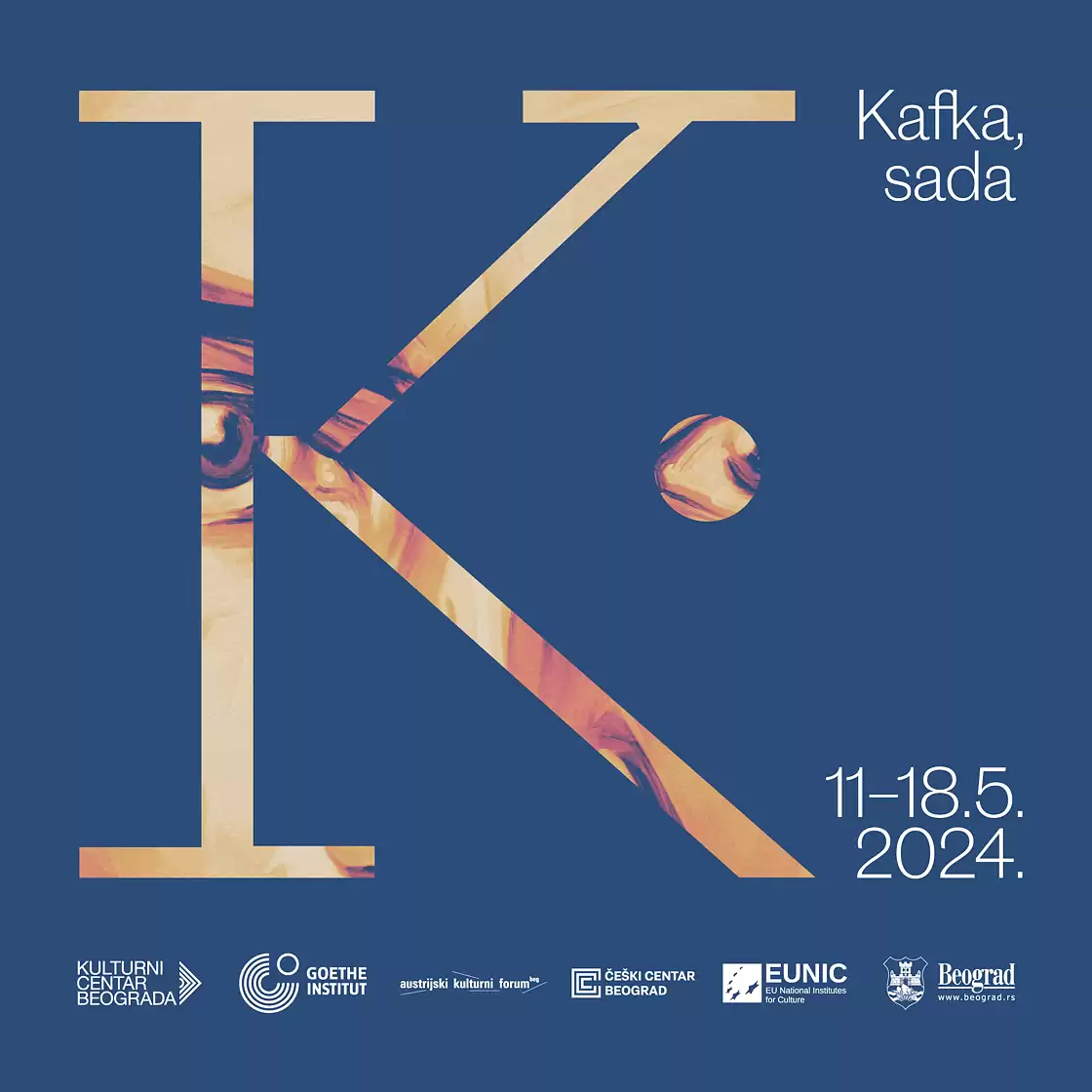
The hundredth anniversary of Franz Kafka’s death in Belgrade will be marked by a seven-day festival, K. Kafka, taking place from May 11th to 18th at various locations and featuring guests from Serbia, Austria, and the Czech Republic.
The festival is conceived as a series of cultural and artistic events showcasing in various ways how Kafka’s literary worlds can contribute to understanding the present and vice versa—how the present contributes to their relevance.
The festival’s opening days are dedicated to a film program at the Cultural Center Hall, presenting Kafka’s work through the lenses of major European directors as well as through short films, experimental, and documentary forms. Visitors can also expect the performance “mirage nymphs,” exploring the experience of the body transformation process through contemporary dance and accompanying audio-visual elements. Additionally, viewers can enjoy a staged reading of the short story “The Country Doctor” performed by Oto Brusati and Nikola Đorić, followed by a series of discussions and lectures on Kafka’s works from the perspective of contemporary humanism, cultural history, and critical analysis. The Serbian edition of the novel “Life After Kafka” by Magdalena Placova and the children’s storybook “Dust, Muck, and Christina,” inspired by Kafka’s works, will also be presented. The final hours of the festival will feature discussions with students from the Faculty of Fine Arts and the Faculty of Applied Arts, regarding the virtual exhibition “MediaMorphoses” presented in video format, premiering at the Art Gallery. The festival concludes with a public reading of “A Hunger Artist” on the plateau in front of the Belgrade Cultural Center. Throughout the festival, the audience can also visit two exhibitions: the comic exhibition “Complete Kafka” by Nicholas Maler at the Goethe-Institut’s “Exchange” Gallery and “Franz Kafka – Man of His and Our Time,” consisting of works created in collaboration between writer Radel Mali and illustrator Renata Fučikova at the National Library of Serbia.
The K. Kafka festival is jointly organized by the Belgrade Cultural Center, Goethe-Institut in Belgrade, Austrian Cultural Forum in Belgrade, Czech Center Belgrade, and EUNIC Serbia – National Institutes for Culture of the European Union in Serbia. Admission to all programs is free.
For more information, you can find it here.
Contact person:
Ljiljana Ilić
063.368.335

